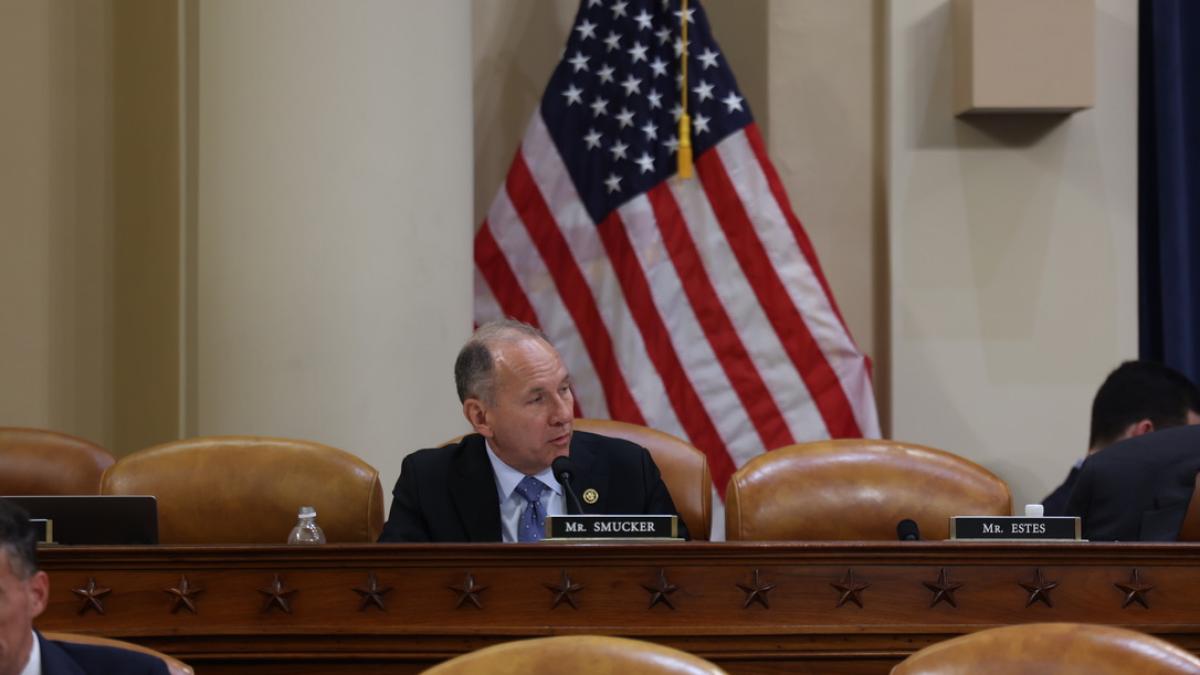Smucker’s Legislation Advances with Strong Bipartisan Support in Ways and Means Committee

Bills address child identity fraud, Social Security benefit clarity, and renewal of Hospital at Home program
WASHINGTON—Legislation introduced by Rep. Lloyd Smucker (PA-11) has received approval in the House Ways and Means Committee and now heads to the House of Representatives for consideration.
Rep. Smucker’s Social Security Child Protection Act, Claiming Age Clarity Act, and the bipartisan Hospital Inpatient Services Modernization Act, co-led with Reps. Vern Buchanan (FL-16) and Dwight Evans (PA-03), were advanced today during markup with strong bipartisan support.
“I am pleased the Committee advanced my bipartisan legislation to protect children from identity theft, clarify Social Security benefits, and renew the successful Hospital at Home program. These bills will prevent fraud, reduce costs and improvement patient outcomes, and deserve swift passage in the House,” said Rep. Lloyd Smucker.
Ways and Means Committee Chairman Jason Smith (MO-08) offered his support for Rep. Smucker’s legislation.
On the Claiming Age Clarity Act:
“Americans deserve clear, accurate information when deciding when to claim their Social Security benefits,” said Ways and Means Committee Chairman Jason Smith (MO-08). “The Claiming Age Clarity Act replaces confusing terms with straightforward language so seniors can better understand their options and make the choice that best fits their financial needs. I applaud Representative Smucker for his leadership on this bipartisan bill that provides a commonsense step to strengthen retirement security.”
On the Social Security Child Protection Act:
“Every child deserves to be protected from identity theft. The Social Security Child Protection Act of 2025 ensures that families can secure a new Social Security number if their child’s card is compromised, addressing a problem in government that has left too many families without recourse,” said Ways and Means Committee Chairman Jason Smith (MO-08). “Thanks to Representative Smucker’s leadership, this bill makes an important correction to safeguard children’s futures from financial harm.”
Background:
- Social Security Child Protection Act (H.R. 5348)
- The legislation would require the Social Security Administration (SSA) to issue a new, different Social Security Number (SSN) to an individual under the age of 14, if the card is lost or stolen while being issued to the child in the mail.
- Under current policy, if that card is stolen or lost in the mail, the SSA will not issue the child a new SSN until that child is the victim of fraud and reports it within 2 years of the fraud taking place.
- Many victims of child Social Security fraud don’t discover it until adulthood, when changing their SSN can disrupt credit, government, and employment records.
- By allowing a child to replace their SSN before entering adulthood, they can be spared from these difficult situations.
- Claiming Age Clarity Act (H.R. 5284)
- Introduced on a bipartisan basis with Rep. Don Beyer (VA-08).
- The legislation would modernize the Social Security Administration’s terminology, so it more clearly explains how retirement age affects monthly benefits.
- The legislation is endorsed by Bipartisan Policy Center Action, AARP, and AMAC Action. AARP noted: “Your bipartisan bill will provide American workers with better and more understandable information about the impact claiming age has on their earned benefits, helping them make more informed choices about when to start collecting Social Security.”
- Introduced on a bipartisan basis with Rep. Don Beyer (VA-08).
- Hospital Inpatient Services Modernization Act (H.R. 4313)
- Bipartisan legislation would enable hospitals to extend successful “Hospital at Home” programs for an additional five years.
- In November 2020, the Centers for Medicare & Medicaid Services (CMS) established the Acute Hospital Care at Home waiver to provide hospitals with increased flexibility to care for certain patients from the comfort and convenience of their homes, rather than in a hospital setting.
- According to the American Hospital Association, this model has been proven to “reduce costs, improve outcomes and enhance the patient experience.”
- A recent report from CMS shows that allowing patients to be treated in a more familiar environment and routine accelerates recovery time, lowers the mortality rate and reduces the risk of hospital-acquired infections and falls.
- Bipartisan legislation would enable hospitals to extend successful “Hospital at Home” programs for an additional five years.
# # #